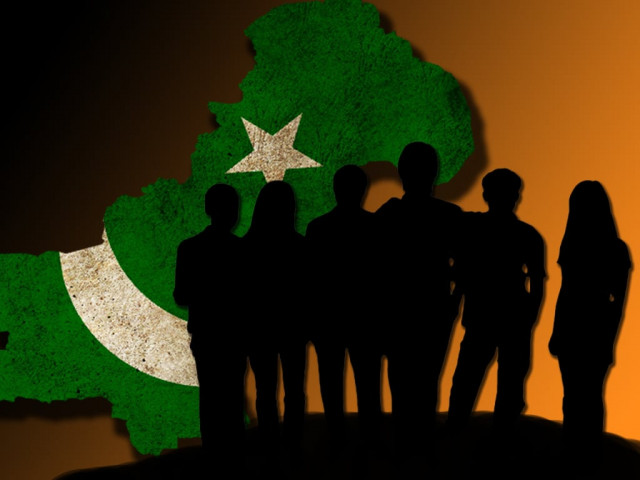Moot urges child-focused climate action
Environmental degradation linked to human rights

Youth took centre stage at the Youth Convention: Climate Change and Role of Youth, where Obun2, in partnership with Terre des Hommes and civil society allies, unveiled its landmark report "The Impact of Climate Change on Children in Pakistan." The two-day convention, held at Beach Luxury Hotel, brought together youth leaders, climate activists, policymakers, and researchers from across the country.
Organised by the Pakistan Fisherfolk Forum (PFF), in collaboration with An Association for Rural Development (DevCon), the Society for the Protection of the Rights of the Child (SPARC), and the Gender and Empowerment Organisation (GEO), the event underscored the urgent need for child-focused climate action, with a central theme highlighting the critical role of youth in climate resilience and advocacy.
Alarming impact on Pakistan's children
The report, authored by researcher Javeria Khan, paints a stark picture of how climate change is disproportionately affecting Pakistan's children and most vulnerable; with 33 million people affected by 2022 floods, half of them children; 26,600 schools destroyed, disrupting education for over two million students; 154,000 child deaths in 2019 linked to air pollution; 119 per cent increase in child marriages in flood-hit regions; 11 million children exposed to toxic smog in 2024; only three per cent of children have access to disaster preparedness education.
"These numbers are not just statistics. They represent lives disrupted, futures derailed, and rights denied," said Executive Director of Obun2, Qindeel Shujaat. "We must act now to build a future where every child is safe, educated, and empowered to fight climate change."
Voices for a sustainable tomorrow
Speakers across sectors called for urgent, youth-led climate action. "We are proud to stand with Pakistan's youth," said Country Head of Terre des Hommes, Salam Dharejo. "They have the ideas, energy, and vision to lead the climate movement. Let's empower them with the tools and support they need."
Chairman of Pakistan Fisherfolk Forum, Mehran Ali Shah,, echoed this, stating "we trust in our youth. They are already facing the consequences of climate inaction. It's time they lead the solutions."
Meanwhile, Chairman of Sindh Human Rights Commission (SHRC), Iqbal Detho, connected environmental degradation to human rights, noting that "climate change is not just an ecological issue; it is a matter of justice, survival, and dignity, especially for children."
Representing the Sindh Directorate of Climate Change, Ayhan Mustafa Bhutto, stressed the need for innovation. "We encourage young people to come forward with solutions. The government must become an enabler, not a bystander."
Key policy recommendations
To address the growing crisis, the report recommends bold action, including the establishment of a Child Climate Fund for local adaptation and mitigation; investing in climate-resilient schools and infrastructure; integrating climate education into national curricula; expanding mental health and psychosocial support in disaster zones; and partnering with private sector and global organisations for child-focused resilience programmes
Convention highlights
The convention featured youth-led panels, interactive exhibits, storytelling sessions, and policy dialogues. Young participants shared innovative ideas ranging from clean energy solutions to community-based climate adaptation.
"This is not just a convention," said one youth participant. "It's a movement. We are the generation that will live through the worst of climate change, if we don't change course now."
The event concluded with a call for immediate government action, with attendees demanding the incorporation of the report's recommendations into Pakistan's national climate policies and education strategies.
Obun2 distributed printed and digital copies of the report to policymakers, media, and civil society actors, with support from the stateofchildren.com portal.
Obun2 is a Pakistan-based organisation dedicated to advancing child rights, human rights, and climate justice through evidence-based research, advocacy, and partnerships with public institutions.















1724319076-0/Untitled-design-(5)1724319076-0-208x130.webp)






COMMENTS
Comments are moderated and generally will be posted if they are on-topic and not abusive.
For more information, please see our Comments FAQ